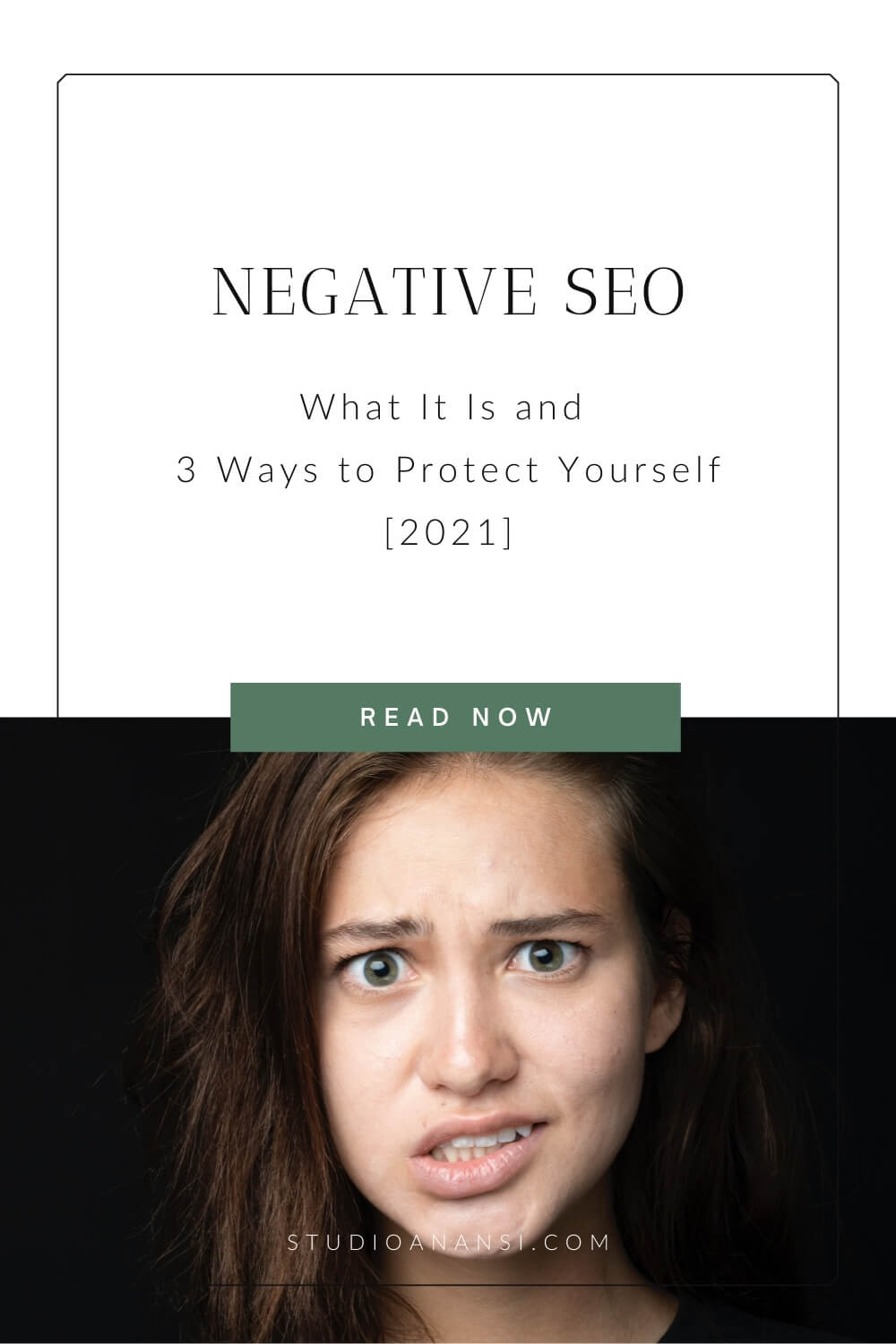

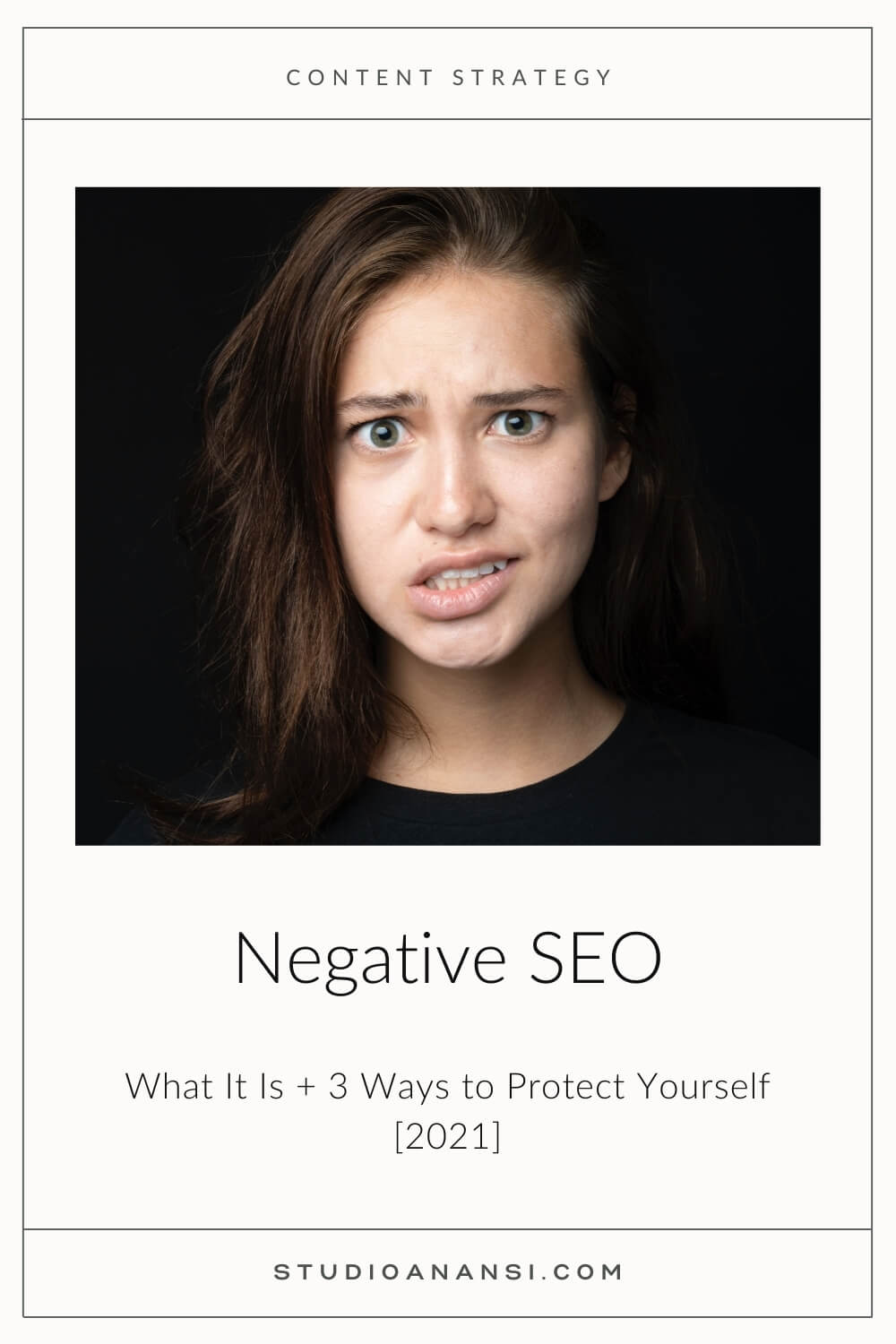
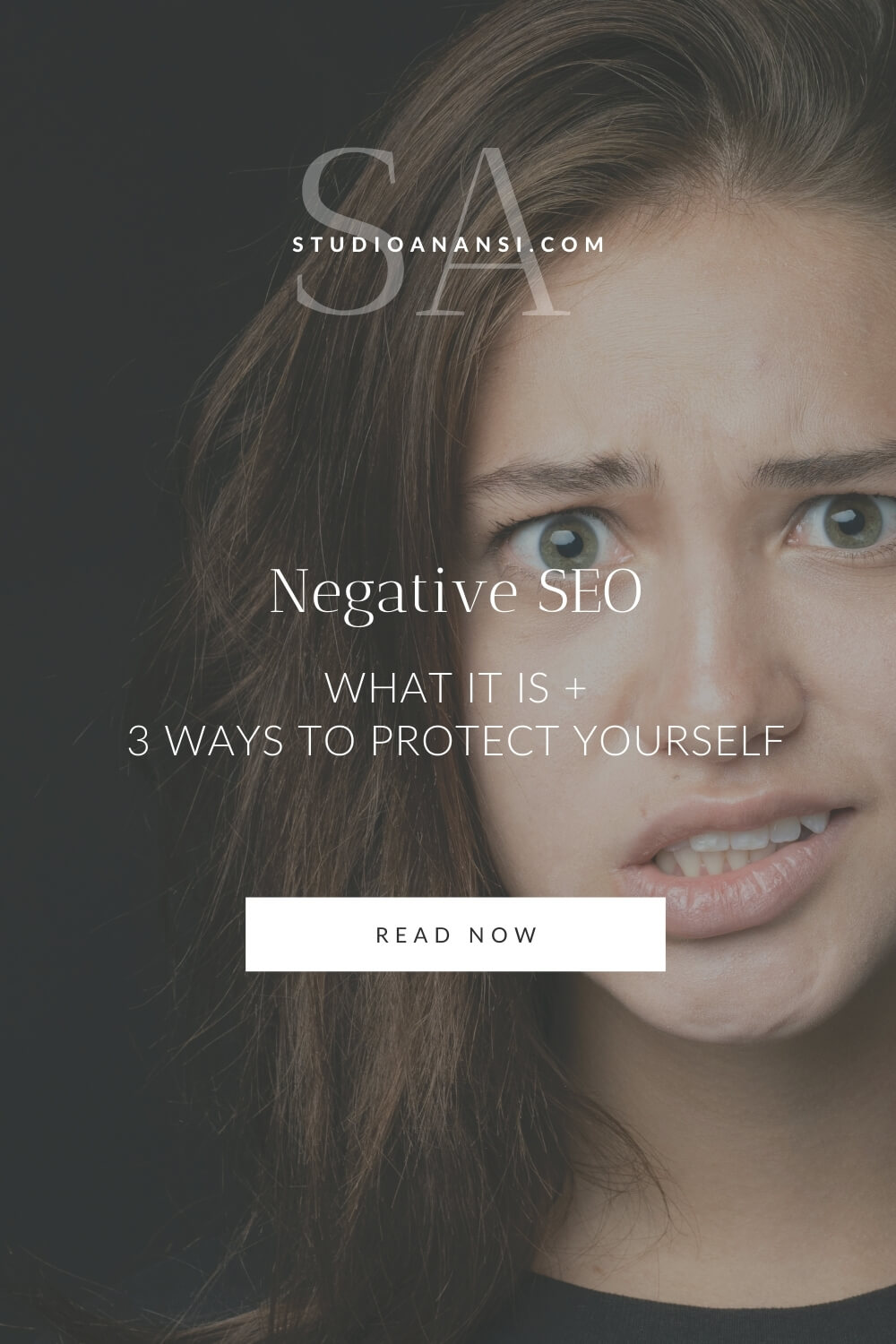



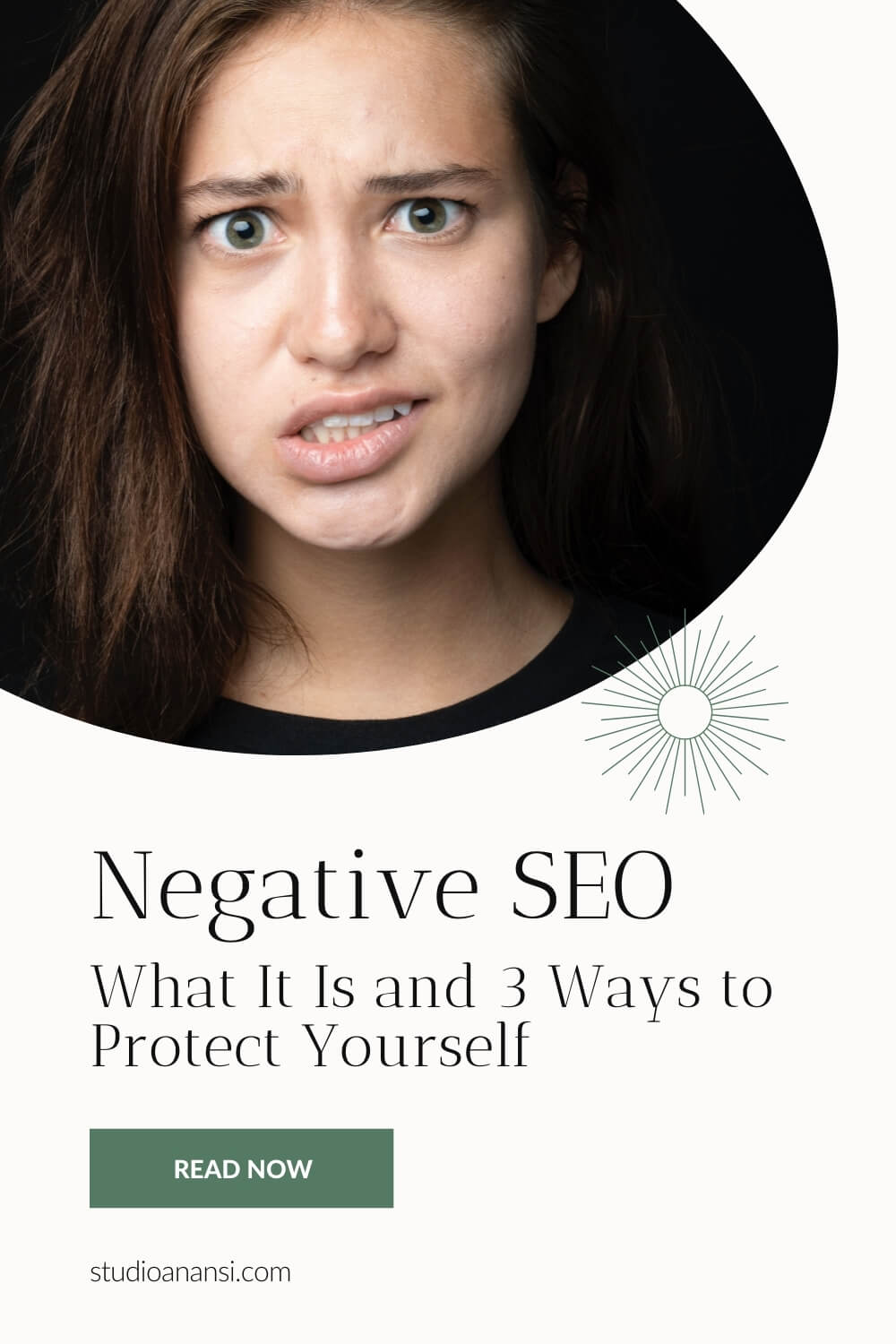
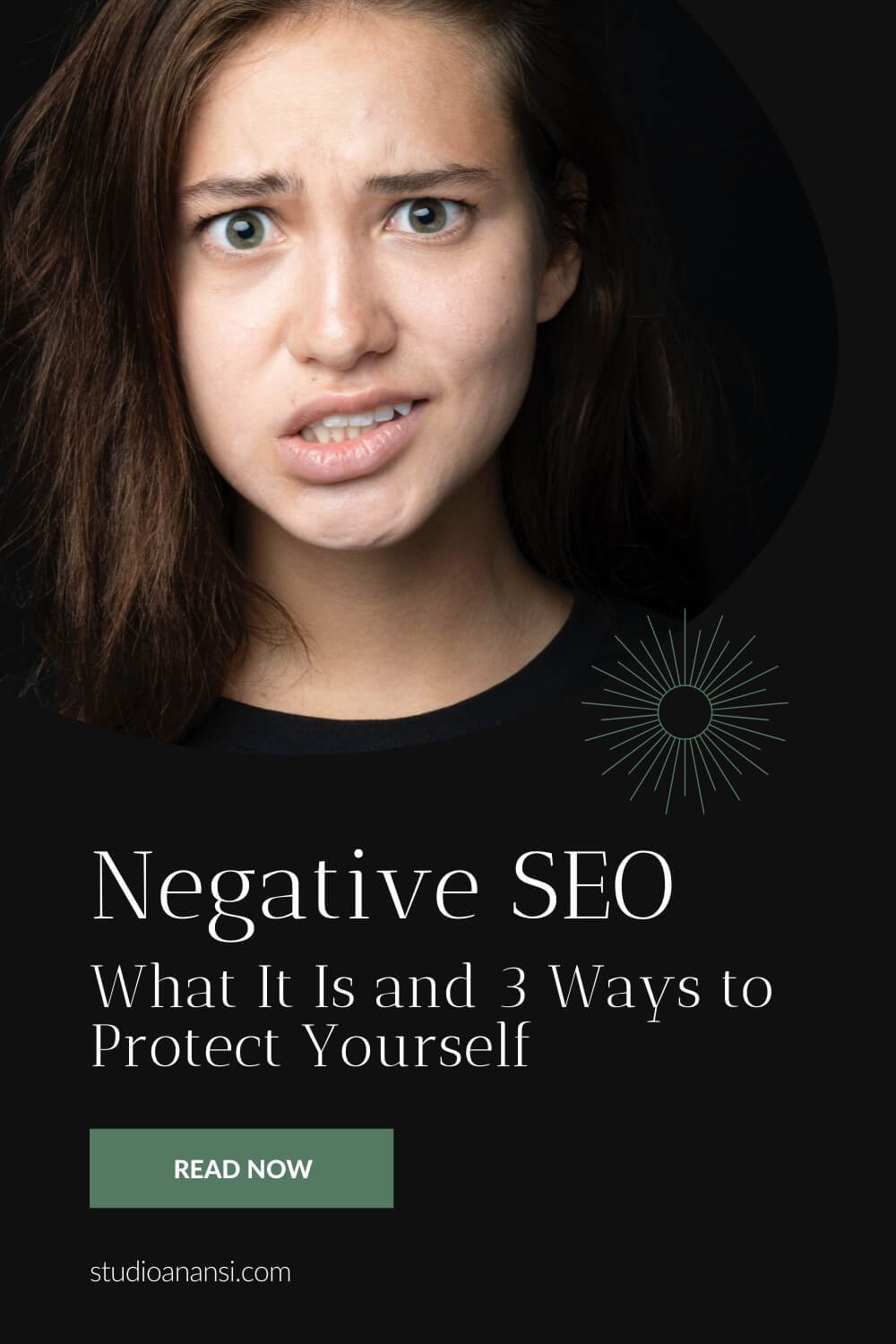
After countless hours of meticulously optimizing your website, you’re confident that customers are finding your business online.
Until one day, when website traffic plummets. Suddenly, you have close to zero organic traffic. Even customers searching for your specific business name are having trouble finding your website online.
You may be asking yourself…what the $%#^@ is going on here??
Bad news — you may be the victim of negative SEO.
Negative SEO refers to the practice of sabotaging search engine rankings. This sabotage can happen with negative content, spammy links, and other underhanded tactics.
When you work hard to create a successful business, it’s incredibly frustrating to deal with negative SEO. The good news is you can reduce the fallout with preventative planning and research. Read on to understand how negative SEO works and what you can do to protect your hard-earned search engine rankings.
What is Negative SEO
Negative SEO refers to the practice of getting a website penalized by Google. Negative SEO techniques may not be illegal, but they are generally very unethical. They include tactics such as:
- Copying your content and posting it across the web (because Google dislikes duplicate content)
- Creating hundreds or thousands of spammy links to your website (so Google thinks you’re breaking the rules by buying links)
- Setting up fake social accounts (to post negative content)
- Writing fake negative online reviews (to fool your audience)
When these techniques work, your website will look like it’s engaging in scammy SEO. Plus, future customers will see negative reviews about your business. As a result, your website traffic drops and search engine ranks suffer.
Who Commits Negative SEO?
Negative SEO doesn’t just happen by accident. It is usually orchestrated by competitors in your industry who want to hurt you or at least steal away some of your traffic and rankings.
The negative tactics used are widely employed without much thought, because they work – even if only temporarily.
That’s why it is important for anyone with a website to understand the harmful effects on their online business that can occur when negative SEO techniques are deployed against them. You need to take concrete steps now so that you don’t end up suffering later!
How to Defend Against Negative SEO
It’s crucial to prepare for a negative SEO attack well in advance. If you know the normal status of your website traffic, it is much easier to be on alert for negative SEO techniques.
To track your website traffic, connect your site with Google’s free tools such as Google Analytics and Search Console. These platforms will monitor your website traffic, search terms, and links from other places on the web.
If you’re a Studio Anansi client, you already have this covered! Each Studio Anansi web design includes free Google Analytics and Search Console integration. If you aren’t a client yet, get in touch to learn more about our Google services.
What happens if you notice a sudden drop in website traffic, or a change in backlinks? You may be the target of a negative SEO attack. Here are three things to check right away.
How to Check for Negative SEO
The first thing to do is perform a Google search for your website. See what comes up in the results pages for an idea as to whether or not negative tactics have been used against you.
Second, look at your backlinks. These are links from other websites to your site. You want backlinks from authoritative sites, not spammy websites. If you see numerous backlinks from spam sites, you may be under attack from negative SEO.
Third, monitor your online reviews. Check reviews on platforms websites such as Facebook, Yelp, Trip Advisor, and Google My Business. Be on the lookout for any sudden increase in negative reviews — especially if those reviews are from newly-created profiles.
If you do spot the signs of negative SEO, it’s time to go into response mode. You’ll need to fix the attack before your search engine rankings suffer too much.
How to Fix Negative SEO
Google has been fighting back against negative SEO since 2011, and the platform is constantly improving at spotting negative SEO attacks. However, it’s best not to passively rely on Google to defend your site. Here are three steps you can take in response to negative SEO attacks.
01 / Disavow Links
If you are the victim of spammy backlinks, disavow the links. The Google Disavow Tool tells Google to ignore certain links to your site so they don’t compromise your rankings
02 / Remove Copied Content
If you find that your original content has been copied and pasted around the Internet, remove that content as soon as possible. Start by contacting the website where the content is posted. They may not take it down, but it’s worth trying that first step. Next, use the Google Digital Millennium Copyright Act Tool to submit a takedown request.
03 / Respond to Reviews
If negative reviews are hurting your site’s rankings, respond to them. Responding with a negative review in return won’t do any good because you’ll be playing into the original attack — giving more negative SEO ammunition to an attacker. Instead, use your customer service skills to turn those negative reviews around or create new content that stands up against these attacks.
Negative SEO FAQ
Does negative SEO work?
Yes, negative SEO works — to a degree. Negative SEO has been well-documented to affect rankings and visibility in search results. However, negative SEO likely will not kill your business or website rankings. If you are prepared, you can generally recover your rankings to pre-attack levels.
Is negative SEO illegal?
Negative SEO is not necessarily illegal. Many negative SEO techniques are questionable, if not downright shady. They may not be technically illegal, but they are unethical.
Help! I think I’ve been targeted by negative SEO.
If you think you are the victim of a negative SEO attack, be sure to respond right away. Disavow spammy links, submit takedown requests of copied content, and address negative reviews. Act quickly so your search rankings don’t suffer permanent damage.
Want help preparing for negative SEO or dealing with an attack? We’re happy to evaluate your SEO and plan a strategic response. Get in touch today to inquire about our SEO services.






